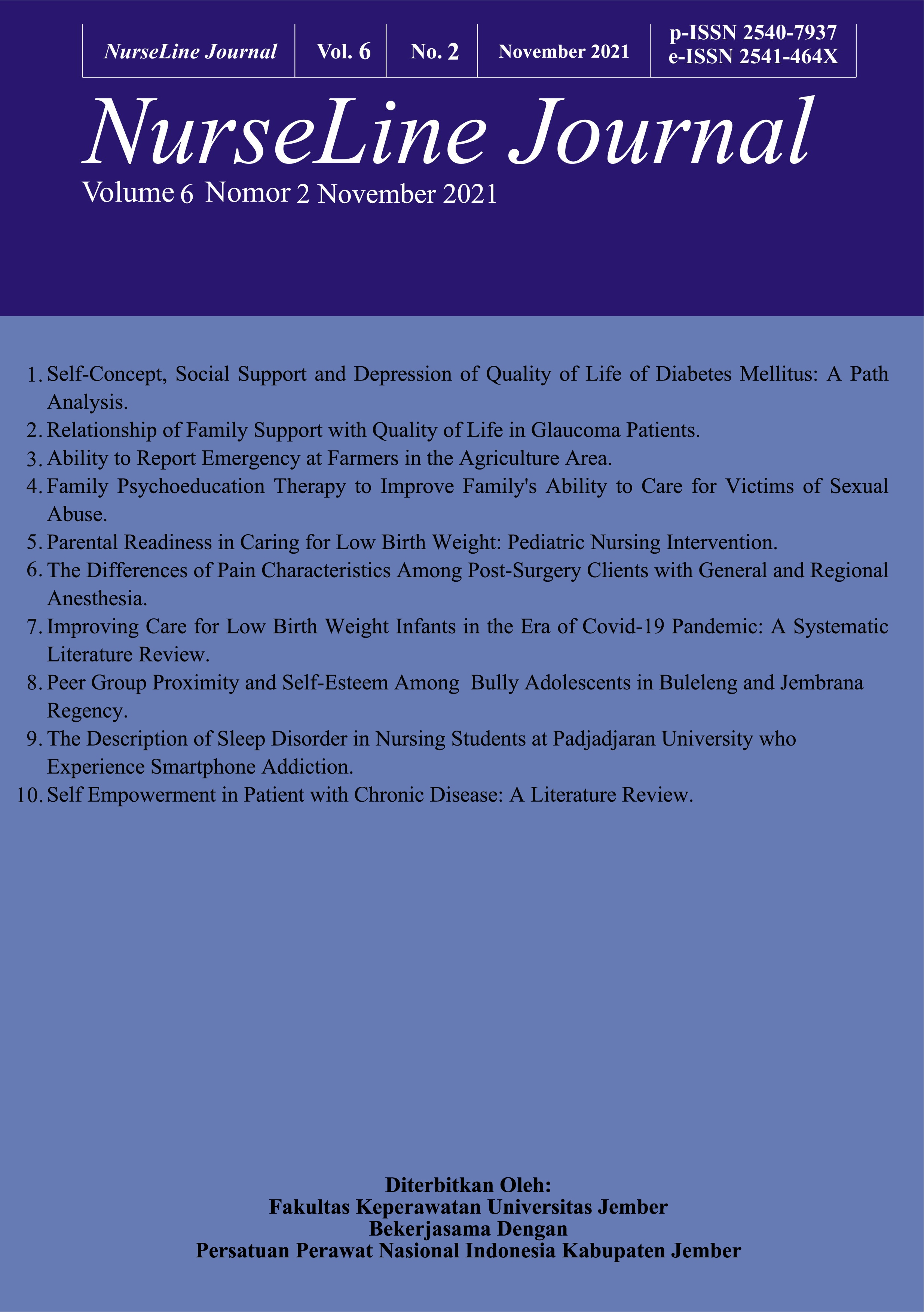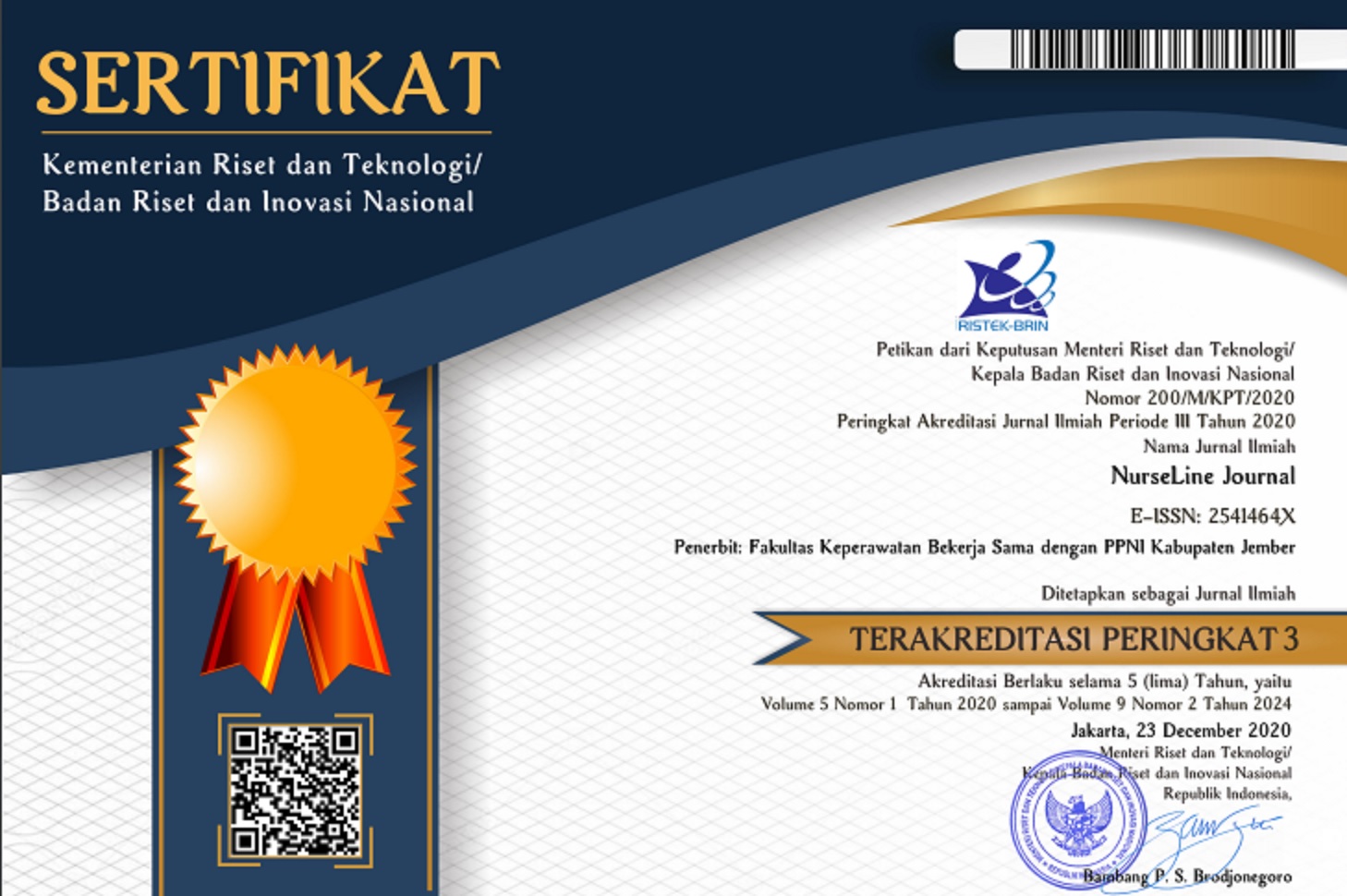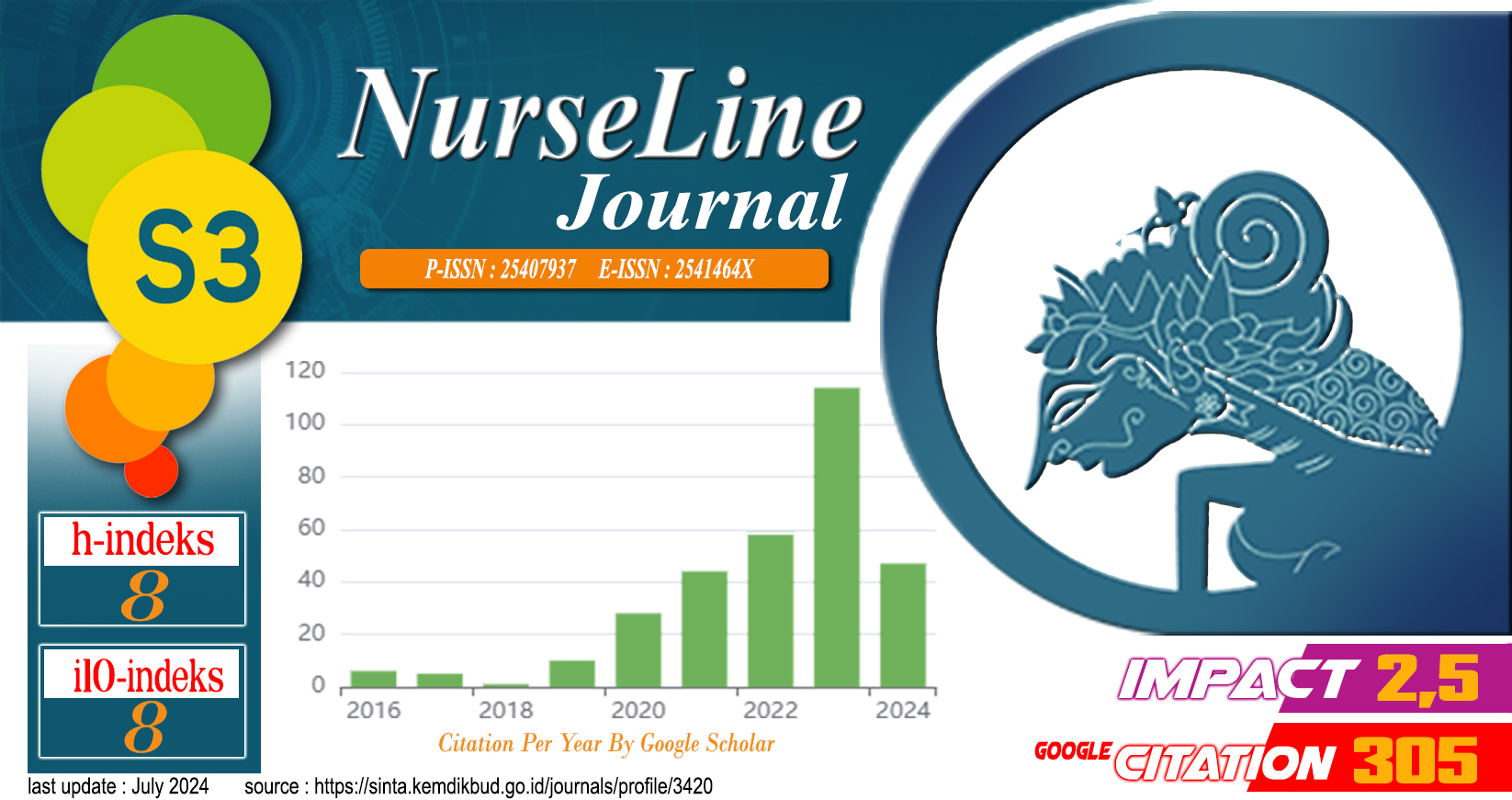Relationship Of Self-Concept, Social Support And Depression On The Quality Of Life In Diabetes Mellitus
Abstract
Background: Diabetes mellitus is a disease that cannot be cured but can be managed both physically and psychologically. The majority of DM patients are very pessimistic about the recovery of their illness. Purpose: This study aims to find out 1) the role of depression as a mediator variable between self-concept variables and social support for the quality of life of DM patients, 2) the role of self-concept of depression, 3) the role of social support against depression and 4) the role of depression in quality of life. Methods: This study was 253 patients with diabetes mellitus at hospital dr. Moewardi Surakarta. Sampling in this study was purposive sampling. Data collection used the Beck Depression Inventory (BDI) questionnaire, Tennese Self Concept Scale (TSCS), the Hersarling Diabetes Family Support Scale (HDFSS) and the Word Health Organization Quality of Life (WHOQOL). Data analysis used path analysis method (path analysis) and strengthened by sobel test test. Results: The study showed that there was a correlation between self-concept, social support and depression on the quality of life of patients with diabetes mellitus which was characterized by the p-value of self-concept of 0.002, p value of social support, depression and quality of life of 0,000. The results of path analysis show that depression is able to be a mediator between self-concept and quality of life and the mediterator between social support for quality of life. this result is reinforced by the sobel test showing a value of> 1.98 with a significance level of 5%. Conclusion: Depression can be a mediator between self-concept and quality of life and depression is also able to be a mediator between social support and quality of life.
References
Badan Penelitian dan Pengembangan Kesehatan Kementerian Kesehatan RI. 2013. Riset Kesehatan Dasar 2013 (RISKESDAS 2013). Jakarta: Depkes RI
Carper Matthew, Traeger Lara, Gonzalez Jeffrey, Wexler Deborah, Psaros Christina, Safren Steven. 2014. The differential associations of depression and diabetes distress with quality of life domains in type 2 diabetes. Journal of Behavioral Medicine (J BEHAV MED), Jun2014; 37(3): 501-510. (10p)
Donald, Mc, S, et al. 2014. Research: Educational and Psychological Issues The psychosocial impact associated with diabetes-related amputation. Diabetic Medicine ª 2014 Diabetes UK, Diabet.Med. 31, 1424–1430. Tahun 2014
Keliat, B.A. 2005. Proses kesehatan jiwa. Edisi 1. Jakarta : EGC.
Misnadiarly. 2006. Ulcer, Ulkus diabetik, infeksi diabetes mellitus, ed 1. Jakarta: pustaka populer.
Portney L.G. & Watkins, M.P. 2000. Foundations of Clinical Research-Applications to Practice. (2nd edition). New Jersey USA: Prentice-Hall Inc.
Rekam medis Rumah Sakit Dr. Moewardi Surakarta. 2017
Renwick, R., & Brown, I. . The Centre for Health Promotion’s Conceptual Approach to Quality of Life: Being, Belonging, and Becoming. Dalam R. Renwick, I. Brown, & M. Nagler (Eds.), Quality of Life in Health Promotion and Rehabilitation: Conceptual Approaches, Issues, and Applications. California: SAGE Publication.
Sarafino, E.P. 2006. Health psychology: biopsychosocial Interactions.5th. New York: John Wiley & Sons, Inc.
Saraswati, R. 2007. Hubungan Antara Konsep Diri Dengan Tingkat Depresi Penderita Diabetes Mellitus Di Rumah Sakit Umum Ungaran. Skipsi Fakultas Kedokteran Program Studi Ilmu Keperawatan Universitas Diponegoro.
Şebnem Çinar Yücel & Elem Kocaçal Güler & İpek Ak. 2014. Investigation of sleep quality, quality of life, anxiety and depression in patients with diabetes mellitus. Int J Diabetes Dev Ctries (January–March 2015) 35(1):39–46 DOI 10.1007/s13410-014-0206-y
Shu-Chuan Chang, B.S.N., M.S.N. 2003. Contributions Of Patient Haracteristics And Organizational Factors To Patient Outcomes Of Diabetes Care In Hualien, Taiwan. Dissertation Presented to the Faculty of the Graduate School of the University of Texas at Austin in Partial Fulfillment of the Requirements for the Degree of Doctoral of Philosophy
Shu-Fang Vivienne Wu, et al. 2013. The efficacy of a self-management programme for people with diabetes, after a special training programme for healthcare workers in Taiwan: a quasi-experimental design. JCN - Journal of Clinical Nursing
Stuart, G.W & Sundeen. 2006. Principles and Practice of Psychiatric Nursing. St. Louis: Mosby.
Safitri, I.N. 2013. Kepatuhan Penderita Diabettes Mellitus Tipe II Ditinjau Dari Locus of Control, Vol.01, No.02, Agustus 2013.
Tan KC, Chan GC, Eric H, Maria AI, Norliza MJ, Oun BH, Sheerine MT, Wong SJ, Liew SM. Depression, anxiety and stress among patients with diabetes in primary care: A cross-sectional study. Malaysian Family Physician 2015; Volume 10, Number 2
Yang, jung., et al. 2009. Predictors of depression in Chinese community-dwelling people with type 2 diabetes. Journal of Clinical Nursing, 18, 1295–1304 1295 doi: 10.1111/j.1365-2702.2008.02703
Yu Liu, et al. 2012. Factor rs related to quality of life for patients with type 2 diabetes with or without depressive symptoms – results from a community-based study in China. Journal of Clinical Nursing, 22, 80–88, doi: 10.1111/jocn.12010.

This work is licensed under a Creative Commons Attribution-ShareAlike 4.0 International License.
















